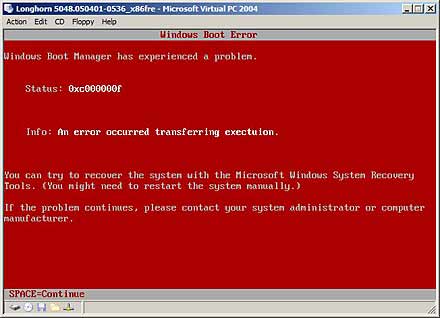The BECTA report is out. Its findings are what one would expect: significant savings and improved performance from dropping Microsoft. At last, the penny begins to drop. Yippee!
Daily Archives: May 13, 2005
Tom Friedman and Open Source software
Tom Friedman’s new book, The World is Flat, has quite a lot in it about Open Source software and the OSS movement generally. Doc Searls has been through it with a fine-tooth comb and written a very interesting two-part critique. I was struck by this passage:
The problem here and throughout the book lies in Tom’s big-company frame of reference. As (I can only assume) a Windows user, and as a widely traveled fellow who no doubt sees approximately everybody in the world using Windows, he grants Microsoft a degree of importance it does not deserve, in a domain it did little to develop: namely, the Net, which is the flat anvil on which all the other flattening forces he profiles hammer down–with the single exception of open source.
What he misses is that the practices, values, traditions, standards, protocols and products that created the Net also are those of what we now call the Free Software and Open Source movements. Yes, commercial interests were involved. Paul Kunz of the Stanford Linear Accelerator Center (SLAC) gives an excellent talk (see Resources) about the history of the World Wide Web, of the role played by high energy physics laboratories (including SLAC and CERN, where Tim Berners-Lee created the Web) and of the roles played by largely uncredited commercial interests, such as IBM (with BITNET), NeXT (providing the machines on which the Web first ran) and Digital Equipment Corp. (With machines and various Decants). In summary, he says, “Use of the backbone remains free, and ARPANET open-source culture persists.”
Let’s face it: if it were up to commercial interests alone, Microsoft especially, the Net we now know never would have come into being. Instead we’d have a forest of silos such as the one that still comprises the instant messaging “market”, where few of the silos–notably Apple’s and AOL’s–communicate with one another.
Doc’s right about the way Friedman’s worldview is clouded by the company he keeps.
Tom also falls into the common trap of assuming that open source is fundamentally, rather than secondarily or peripherally, in competition with commercial software, especially Microsoft’s. Once trapped, it’s easy to characterize open source vs. Microsoft as another sports contest between market leaders. Although some competition does exist, there is far more symbiosis in the real world where we find countless Windows clients making use of open-source infrastructure and open-source products, as well.
I like the way Doc thinks and writes. He has a way of getting to the heart of things. For example:
The fact is, or will be, far more money will be made because of open source than will be made with open source–or with any of the infrastructural (in Tom’s words, vanilla) software it replaces. Think of open-source infrastructure as a huge, flat cake on which you can build a vast new market for any kind of topping you like. A cake which, by the way, only gets bigger.
Never buy graph paper again!
What a great idea — Free Online Graph Paper — in PDF format.
Excuse me, Sir, your dog is ringing
Good Morning, Silicon Valley reports that
South Koreans hoping to communicate with man’s best friend could be getting help soon from their cell phones. KTF Corp., a South Korean mobile phone operator, said Thursday it will begin offering a service that will enable dog owners to know whether their pets are feeling happy or sad.
The users must first connect to Internet with their cell phones, and then register information of their dogs such as the breed and age. The service will then record the dog’s bark.
The owner will receive text messages telling them how their pet is feeling, such as “I am happy” or “I am frustrated.”
Shome mishtake here?
Er, not being entirely convinced by this story in The Register, I typed “Brothels in Cambridge” into Google Maps, and it came up with five establishments. The first was BBC Radio Cambridgeshire. The second was the Medical Research Council. Both are exceedingly respectable outfits — and the other three listed seemed, well, improbable! Shome mishtake here, as Private Eye says, mimicking Bill Deedes (aka William Boot).
On the other hand, a search for “Churches in Cambridge” provides an excellent and accurate list. So what is it about brothels that makes Google go wild?
En passant, it seems improbable to me that a town as sedate as Cambridge would have brothels. Or perhaps I am just naive.
Later: Andrew Brown, from whom nothing is hidden emails with an ingenious theory.
If you click on the links on the map, you will come, often enough, to news stories in which brothels are mentioned that have little or nothing to do with the place on the map. But if they came from a newspaper which was spidered at a time when it also had a brothel story on the same page, this will fool Google. I think that because it’s not a recognised business category that we get this problem. That would certainly explain why the police stations are there in the Register story.
That seems pretty plausible to me. Come back, Google, all is forgiven.
Longhorn: a preview

Michael Kaplan has discovered an interesting innovation in a beta version of Microsoft’s new operating system. It seems that the Blue Screen of Death so beloved of Windows users is no more. The new colour may be a clever strategic move to persuade Russian users to pay for their copy of Longhorn — rather than ripping them off as they do with current versions.
